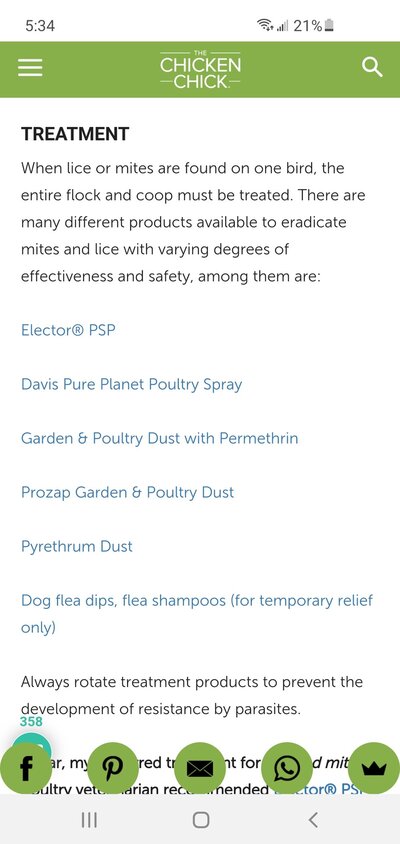So we started our flock with two chickens who had what we thought was mites. They have since died but all the chickens we have got since then are plagued with losing feathers, (feathers being eaten?) irritated bald spots, their vents are red and poopy....
We have treated the chickens and the coop for mites. Dusted them all three times. So far I don’t see a change. Over the winter they all got much better but spring came and it started up again.
Are we wrong about the mites? Could it be something else? Should we keep treating or try and different treatment? Thanks
We have treated the chickens and the coop for mites. Dusted them all three times. So far I don’t see a change. Over the winter they all got much better but spring came and it started up again.
Are we wrong about the mites? Could it be something else? Should we keep treating or try and different treatment? Thanks

